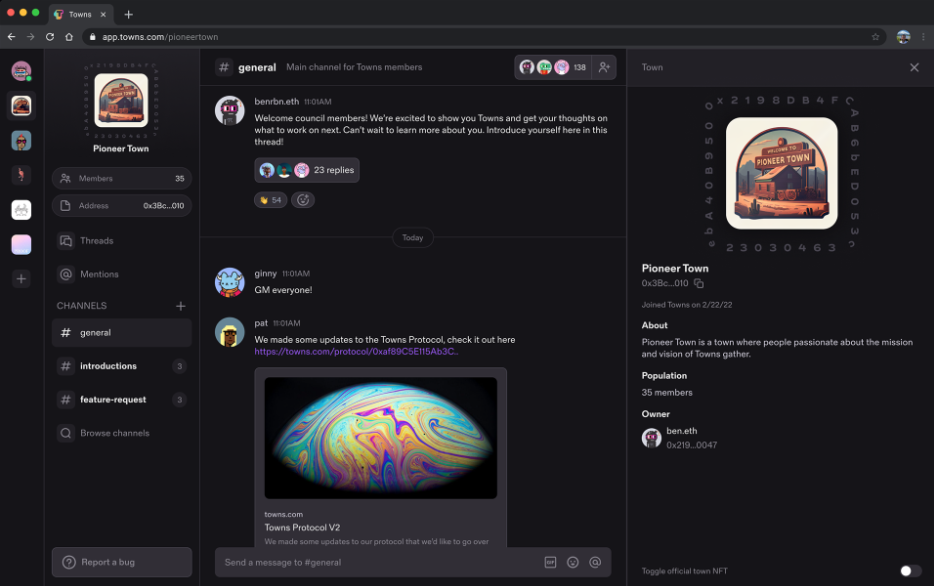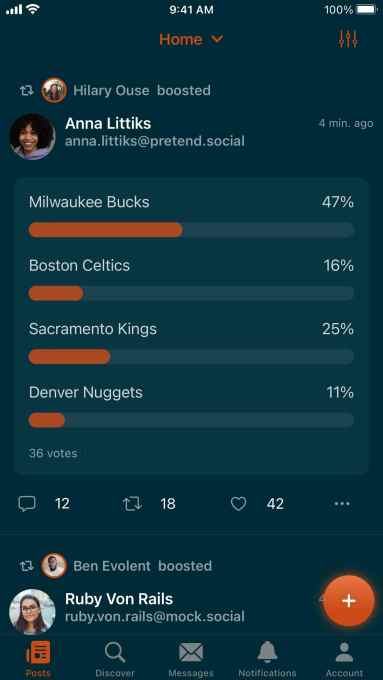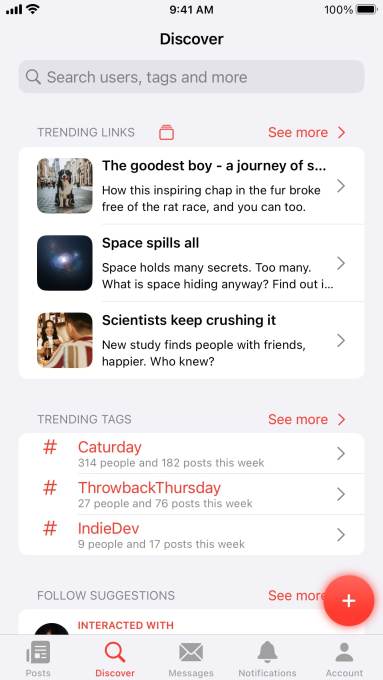After launching a pair of well-loved but ultimately star-crossed social apps, Ben Rubin is going all-in on decentralization.
Rubin previously founded Meerkat and Houseparty — apps that pioneered mobile livestreaming and group video chat, respectively — shaping massive social trends in their earliest stages. After working on Slashtalk, an “anti-meeting tool” for the workplace, Rubin is now back to working on consumer apps, albeit in a roundabout way.
These days, Rubin’s vision for social media bears little resemblance with the colorful, user-friendly apps he’s known for popularizing. He’s clearly internalized the lessons of Meerkat’s unfortunate demise and Houseparty’s premature pre-pandemic death-by-acquisition via Epic Games. Rubin is something of a Web3 true believer now, happy to weather the frenzied speculative investment cycles and Sam Bankman-Frieds while holding out hope that the underlying technologies can still unlock a better future for some aspects of the web.
Rubin is currently running Here Not There Labs — “a team of web3 creators dropping projects as we go.” Brian Meek, a longtime former Microsoft employee who worked on Skype’s mobile app, serves as the company’s co-founder and CTO.
Their new project is Towns, a protocol and a web-based chat app designed to facilitate self-owned, self-governed online communities. Because web3, there’s also a crypto component, so Towns will likely initially appeal much more to enthusiasts in that community than the average app store-goer like his past projects.
Out of the gate, Here Not There Labs has picked up a $25.5 million Series A round from A16z Crypto, which joins its existing backers Benchmark and Framework Ventures. It’s also picked up the Towns.com domain (for the low, low price of a couple hundred thousand dollars), a point of pride for Rubin and a mark of his plans for a long game.
“This is this is not just a crypto project — this is a new way of thinking about social networking as a network that is owned and operated by its constituents,” Rubin told TechCrunch. “And I think that’s very exciting to me, especially coming from the experience I had with Meerkat and then Houseparty, where a lot of us didn’t want to sell… But we didn’t govern our own product at [that] point and that’s a product that got to 150 million users.”
The Towns protocol will offer users an Ethereum-based smart contracts system (think miniature programs that live on and are executed through the blockchain) and end-to-end encrypted chat. Here Not There Labs says Towns’ smart contracts that are “extensible, composable, and upgradeable” and will ultimately empower communities to draft their own rules for who gets to participate, what is allowed and how and if they’ll monetize. The Towns backend will run on a relatively centralized proof-of-authority algorithm initially while the team builds out the protocol and will then move to a proof-of-stake system à la Ethereum 2.0 in time.

If the interface looks familiar, it’s not just you.
For users less interested in the wonkier crypto aspects but still intrigued by the promise of decentralization, Towns will also manifest as a set of apps, starting with an invite-only alpha web app that’s live today. As the company explains it, “The Towns app takes all the technical things the protocol implements and makes them available in an open-source, end-to-end encrypted delightful chat experience” — an experience more appealing for users whose eyes glaze over at the mention of NFTs and DAOs.
A broader beta launch that will let anyone create their own community with the protocol is slated for September with a mobile web app on the way in the coming months and native apps thereafter. Down the road, Rubin expects there to be many user-created Towns apps built using the project’s protocol.
For now, the earliest users will have to log in to town with their crypto wallet — a landing page that your average non-crypto person is likely to find confusing at best — but Towns plans to add support for Passkeys, Apple’s next-generation login technology.
Towns wants communities to “truly own their town squares,” though notably the project plans to take a cut of the crypto that gets traded around in those communities to sustain itself. Those specifics will be ironed out as the governance structure gets set up, according to Rubin. Here Not There Labs says it will only run the show in the beginning and decentralize over time, handing the reins over to a Towns-specific DAO (decentralized autonomous organization) that will oversee its governance and make decisions.
“It’s kind of funny, there’s one person who’s controlling one platform that everybody uses, which is Facebook, and then now there’s another person who’s controlling the other platform that everybody uses, which is Twitter,” Rubin said, noting his unease with consolidation in other industries, like Nestlé’s big bottled water play in North America.
The user experience of the Towns web app bears a striking resemblance to Discord and it seems obvious that the project plans to lure disenchanted members of that more traditional chat app’s crypto community. Towns might be inspired by Discord’s design and utility, but if you ask Rubin, Discord isn’t a community model that should inspire its users. “They rent — they have a landlord called Discord and they rent from them,” he said.
What’s less clear is if Towns could have more mainstream appeal to the kind of people who’ve grown uncomfortable with Twitter’s Elon Musk era and are willing to decamp for decentralized but still pretty user-friendly social spaces like Mastodon. Mastodon takes more after Twitter — Towns is very much a chat tool — but the ethos is similar, even if the emphasis on crypto isn’t shared.
Since the project is still in its early days and does have a heavy crypto tie-in, Towns seems designed to appeal strongly to Rubin’s fellow web3 true believers for now. If that will change in time remains to be seen but there’s certainly a growing appetite for online social experiences that aren’t subject to the whims of the mercurial billionaire du jour.
“I think there’s something really exciting about securing that the ability of humans to coordinate and collaborate,” Rubin said. “The idea that it’s censorship-resistant, that it’s encrypted and is owned and operated by the users.”
Houseparty’s founder launches Towns, an open source group chat app that comes with a blueprint by Taylor Hatmaker originally published on TechCrunch




